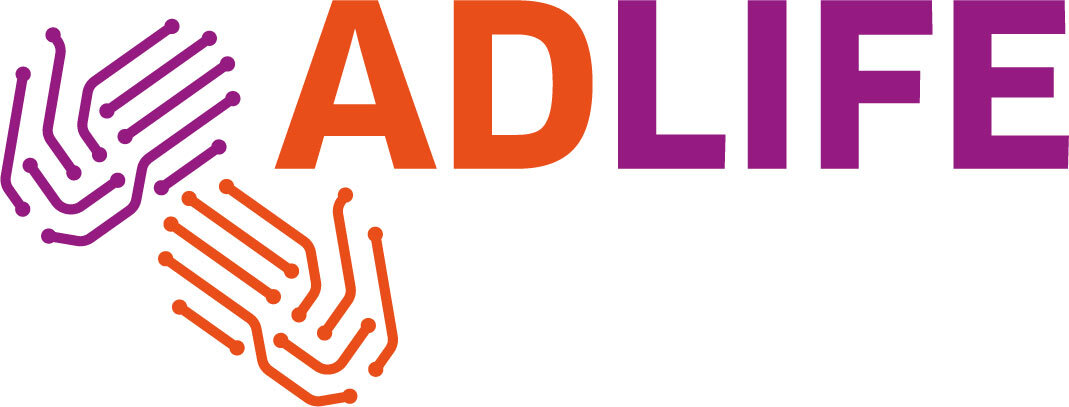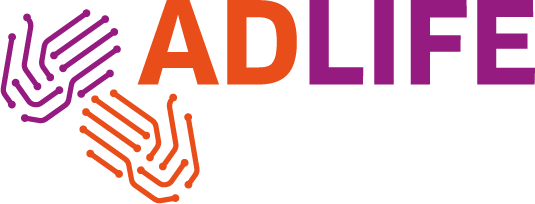Exploring the role of nurse care coordinator in our Israeli pilot site
The ADLIFE research project is piloting three complementary digital platforms to test digitally-enabled integrated care for patients with advanced chronic diseases. The Israeli pilot site, Samson Assuta Ashdod University Hospital, started its pilot in March 2023, upgrading the site’s care planning platform and patient app with the ADLIFE functionalities. To achieve smooth communication between research participants, three nurse care coordinators were appointed, entrusted with the key role of relaying participant experiences with the local project coordination team.
Yanna Abramzon
“Establishing a personal relationship with the patient right from the start is the best way to ensure a smooth follow-up through the course of the project”.
In this interview, Veerle De Wispelaere discusses this role with Yanna Abramzon, the lead nurse care coordinator involved in the ADLIFE pilot site in Israel. Yanna has worked in the Maccabi Healthcare Services for 14 years. Besides her degree in nursing, Yanna has followed a course in advanced care for elderly patients and is now studying to obtain her master’s degree in geriatrics. She left her position as deputy nurse of the Ashdod District last year to take up the role of nurse care coordinator for the ADLIFE project.
Veerle De Wispelaere: Yanna, as a nurse care coordinator, you are liaising with all participants involved in the ADLIFE pilot. Tell us more about your mission in ADLIFE.
Yanna Abramzon: We obviously very much value the commitment of the ADLIFE research participants as they help us test and develop new ways of digitally-supported integrated care. We want to be on hand for any question that may arise. That’s why participants can turn to a dedicated team of 3 research nurses at all times during the pilot period. Pilot patients and health care professionals can call us all week for both technical and health-related questions. Obviously, when they have specific clinical questions for a medical consultant they can use the communications tools that have been developed to that effect in the app.
The questions we receive provide valuable input on patient and clinician experience with the new ADLIFE functionalities. This user feedback is one of the topics discussed at our weekly project coordination meetings with the local project coordinator and the local clinical researchers.
VDW: Patient involvement and patient-generated data contribute to a closer monitoring of the patient’s health status. How does this process work in practice?
YA: At the start of the pilot, patients and their caregivers are invited to the hospital for a comprehensive baseline evaluation. Following this assessment, hospital specialists discuss their care recommendations with the patient’s GP to set up a personalised care plan which is subsequently introduced into the ADLIFE platform and shared with the patient.
The app reminds patients of their regular medications, care activities and tasks they have to carry out, such as physical activity. It also alerts patients when they have to take and report measurements, e.g. blood pressure, temperature, as well as filling out short questionnaires.
I keep a close eye on the daily stream of patient-generated data. If an unexpected change in the patient’s status catches my attention, I consult the GP so that he can check the measurement and take the appropriate action. He could for instance adjust the care plan or invite the patient for a consultation. This digitally-supported information exchange enables a closer monitoring of the patient's health status and early risk detection in between regularly scheduled doctors’ consultations.
VDW: As a study nurse in the ADLIFE pilot, how do you manage the variety of assignments that have been attributed to your role?
YA: The process of collaboration requires a lot of attention and hard work and cannot be taken for granted. As nurse care coordinators, we obviously have a role as liaison and resource persons for all participants in the ADLIFE pilot. They can turn to us for questions related to the use of the ADLIFE functionalities and patient status.
Meanwhile, I know them well as I have reached out to them from the very first steps of the start of the pilot: I helped recruit clinicians and patients, I organised training sessions and sorted out administrative paperwork such as consent forms.
To date, we have recruited 23 healthcare professionals and 76 patients, and the recruitment process is still ongoing. We have set a target of 148 patients and we will undoubtedly recruit other health care professionals such as social workers and therapists as needed by the patients.
Furthermore, I do not only support the monitoring of patient-generated input but I also monitor the frequency with which the health care professionals and patients use the system.
Generally speaking, helping patients is what drives my energy. As a nurse practitioner in geriatrics, I really like working with elderly people, and I hope to continue working with them and become more and more specialised. The ADLIFE project gives me the opportunity to learn new research skills and to build up a rapport with the pilot patients, and their caregivers, over the course of the project. The best of two worlds!


